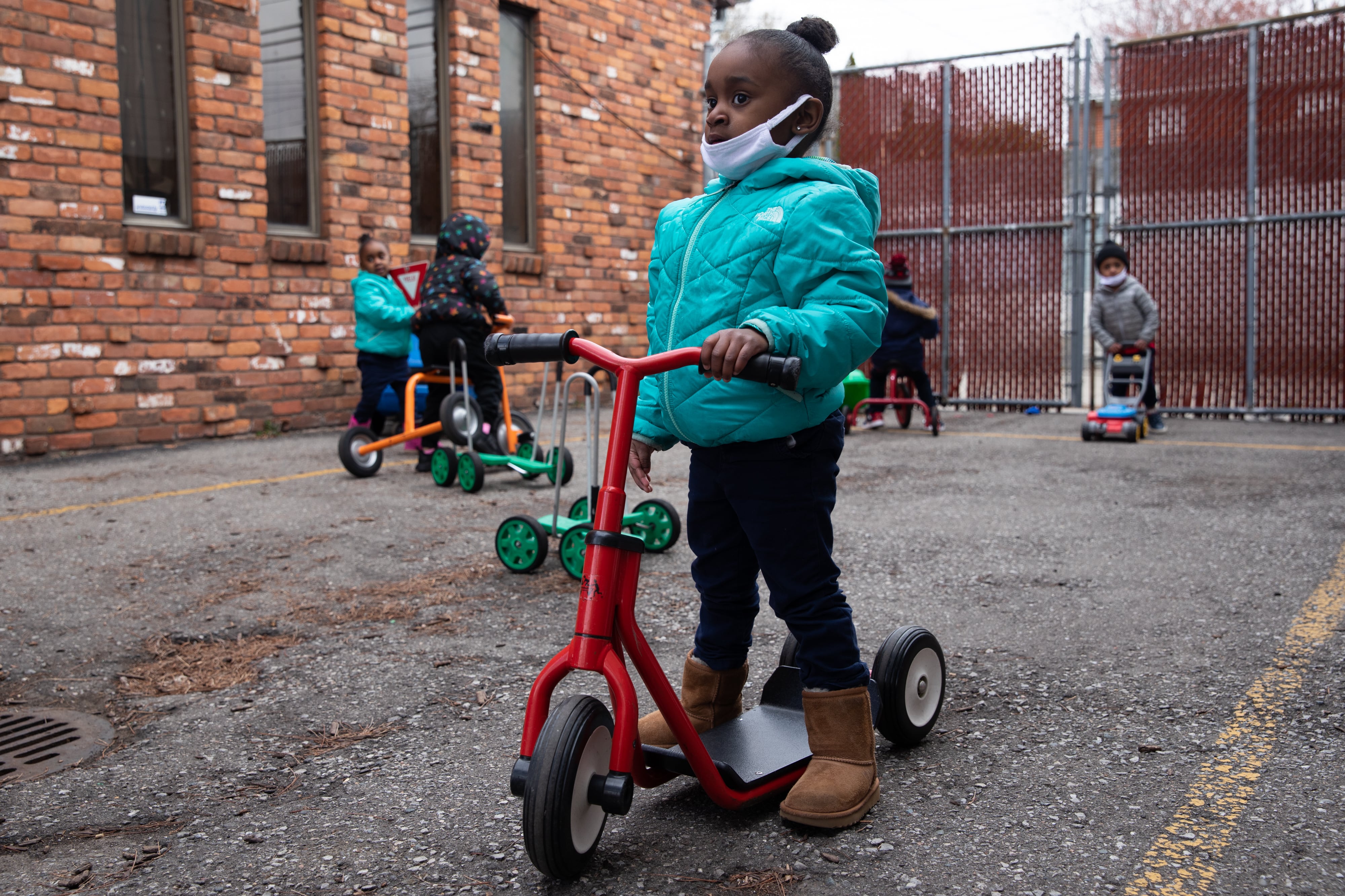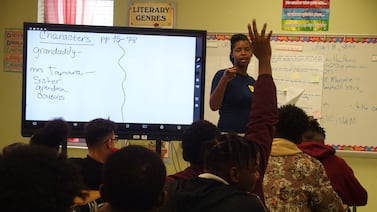At a time when academic recovery from the pandemic has been slow, Gov. Gretchen Whitmer announced a plan Wednesday to increase spending on Michigan’s most vulnerable students.
In her budget proposal, Whitmer also said she wants to invest more in preschool, provide child care workers with payments to enroll their own children in the kinds of programs in which they work, and expands the state’s scholarship program to ensure all high school graduates can enroll in community college, for free, if they choose.
The new investments in the $80.7 billion state budget amount to hundreds of millions of dollars of additional funding for education initiatives at a time when research shows Michigan students overall are still far behind where they were academically before the pandemic. It also comes as school districts across the state face the loss later this year of the federal COVID relief money that has helped boost tutoring and mental health services students have sorely needed.
And it’s possible, Whitmer said, because the state paid off billions in debt in the Michigan Public School Employees’ Retirement System. Those debt payments, she said, freed up $670 million.
“We have the resources to invest in our people,” said Whitmer, who first outlined her proposals during her State of the State address last month.
Negotiations will now begin. Democrats hold the majority in the Senate, but until elections can be held in April for two open seats, the House is split evenly between Democrats and Republicans. Those two seats are in heavily Democratic districts.
Republican leaders were critical of the governor’s budget proposal.
“Last year, Democrats blew through a $9.2 billion surplus and fought for a $700 million income tax hike,” Sen. Jon Bumstead, a Republican from North Muskegon, said in a statement. Bumstead is the minority vice chair of the Senate Appropriations committee. “Now they are presenting an unsustainable budget that spends more money, bloats the size of government, and offers crumbs for average Michigan families still coping with higher costs on virtually everything.”
Here’s what Whitmer is proposing for schools, students, and families:
Increase in per-pupil aid for schools, including for the neediest students
The minimum amount school districts would receive per pupil would be $9,849, an 2.5% increase of $241 per student over this year’s level.
Meanwhile, Whitmer proposed continuing a practice she started several years ago of weighting funding for districts based on the needs of some students. That means schools receive additional money for students who are “academically at risk,” English language learners, career and technical education students, and rural students.
The budget calls for increasing funding by $125 million for those groups of students, which amounts to a 5% increase over the $118 million spent this year.
Community college guarantee for high school graduates
Whitmer’s budget calls for a $30 million increase in funding for the Michigan Achievement Scholarship, which would allow the program to expand to ensure every high school graduate in the state could receive an associate degree or skilled certificate at a community college for free.
With the community college proposal, more than 18,000 students would each save up to $4,820 on tuition each year, according to the budget proposal.
In her remarks to lawmakers Wednesday, Whitmer said the community college proposal would also help the state move closer to a goal to have 60% of the state’s working-age residents have a postsecondary certificate or college degree by 2030. When Whitmer took office in 2018, just 45% had achieved a certificate or college degree. That percentage is now at 51%.
“This would be a transformational opportunity for our students,” she said.
“Investments in community college are key to Michigan’s overall prosperity, as these degrees and certifications bolster the workforce across the state and help meet emerging talent needs of employers,” Brandy Johnson, president of the Michigan Community College Association, said in a statement.
Expanding free preschool for all
Whitmer’s budget includes making the state’s free preschool available to all 4-year-olds regardless of family income – two years ahead of schedule. She had previously proposed phasing in the expansion.
The expansion would cost an additional $159 million, including $63.5 million to allow the Great Start Readiness Program to enroll an additional 6,800 children. The rest of the increased cost would cover increasing the per-student allocation, opening new classrooms in underserved areas, and to help pay for the cost of transportation.
Child care workers would get free care for their children
Whitmer also plans to invest more in the child care sector.
The state would spend $60 million to create a pilot program to provide these workers with benefits to pay for child care for their own children. Budget documents say the median child care worker pay is $13.71 an hour.
“The average cost for child care for one child is $10,600 annually, which means the average child care worker would need to dedicate over 37% of their gross salary to child care costs if they want their child to receive the same care they provide for other children on a daily basis,” the document says.
Expansion of free school meals
Public school students across the state would continue to receive free school meals with $200 million Whitmer proposes including in the budget. Lawmakers included money in the current budget to ensure that each of the state’s 1.4 million children would have access to a free breakfast and lunch.
She said the free meals save families $850 a year on grocery bills and eliminates the struggle of ensuring children get out the door in the mornings with their lunch.
“Knowing that your child will eat no matter what is a huge relief,” Whitmer said.
The free meals have been criticized by Republicans because it is only for public school students, not for children enrolled in private schools or children being home-schooled.
“Why are they left hungry?” Sarah Lightner, a Republican from Springport, asked during the budget presentation.
Lori Higgins is the bureau chief for Chalkbeat Detroit. You can reach her at lhiggins@chalkbeat.org.






